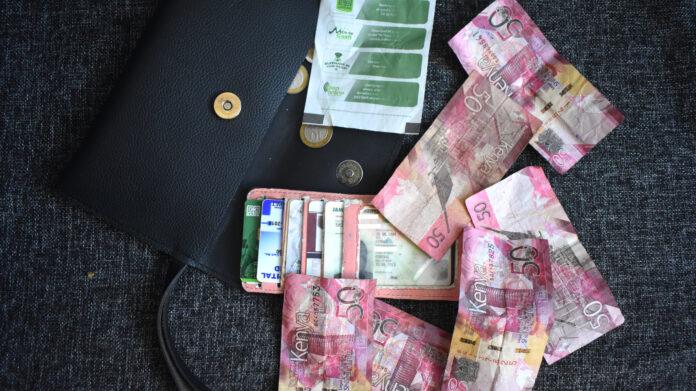Most of us could use a little help when it comes to our finances. In fact, according to a study, 62% of people out there say they are not at all confident in their ability to manage their money effectively.
If you’re one of those people, don’t worry – you’re not alone. But that doesn’t mean you can’t learn how to manage your money better. In fact, with a few simple tips and some practice, you can become confident in your ability to handle your finances and start building wealth for the future.
So, if you’re ready to take control of your financial future, keep reading for 10 tips on how to manage your money like a pro.
Set up the right bank accounts
Trying to manage your money without the right bank account is like caring for a car without the right parts. The first step to managing your money effectively is to set up the right bank accounts. You’ll need a checking account for day-to-day expenses, savings account for long-term goals and an emergency fund, and a credit card to build up your credit score.
Once you have the right accounts, you can start setting up a budget. This will help you keep track of your income and expenses to ensure you’re always staying within your means.
Make a plan for your money
The most important part of managing your money is to have a plan. This doesn’t mean you need to be a financial expert – but you need to know what you’re working towards and have a general idea of how you will get there.
Start by setting some financial goals. Do you want to save for a down payment on a house? Start an emergency fund? Pay off your credit card debt? Once you have your goals in mind, you can start developing a plan to achieve them.
Your plan doesn’t need to be perfect, but it should give you a roadmap to follow so you always know where your money is going and how it can best be used to reach your goals.
Set the right financial goals
When it comes to setting financial goals, it’s important to make sure they are the right goals. Many people set too general goals, like “saving money” or “getting out of debt.” But these types of goals are hard to measure and even harder to achieve.
Instead, try to set specific, measurable and attainable goals. For example, “Save Ksh. 5,000 for an emergency fund” or “Pay off my loan in 12 months.” These types of goals will keep you motivated and on track as you work towards them.
Cut back on your expenses
One way to save money is to spend less of it. You can do this by cutting back on your expenses.
Take a look at your budget and see where you can cut back. Do you really need that Ksh. 200 coffee every day? Could you buy your clothes second-hand instead of new ones? You can make many small changes in your spending that can add up to big savings over time.
If you’re not sure where to start, try tracking your spending for a month. This will give you a good idea of where your money is going and where you can cut back.
Take a look at your income
To manage your money effectively, you need to know how much money you have coming in. This might seem like a no-brainer, but many people don’t take the time to really understand their income.
Take a look at your pay stubs and figure out how much money you bring home each month. Then, take into account any other sources of income, such as investments or side hustles. Once you understand your total income, you can start planning what to do with it.
If you are not satisfied with your income, you need to start looking for ways to bring in more money than you are spending. This may mean getting a better-paying job, working overtime or finding other ways to boost your income, like a side hustle.
Create a plan to pay off debt
The longer you keep debt around, the more interest you will accrue, making it harder to get out of debt.
There are many different strategies you can use to pay off debt. The most important thing is to find one that works for you and stick with it. Some people pay off their debts from smallest to largest, while others focus on the debts with the highest interest rates first.
Whichever method you choose, be sure to make all your payments on time and in full. This will help you avoid late fees and penalties and start rebuilding your credit score.
Get to understand your credit score
Your credit score is a number that represents your creditworthiness. Lenders use it to determine whether or not you are a good candidate for a loan. The higher your credit score, the better your chances of getting approved for a loan with a low-interest rate.
There are many things that can affect your credit scores, such as late payments, high balances and hard inquiries. You can check your credit score for free online to see where you stand. If your score is lower than you’d like, there are steps you can take to improve it.
One easy way to improve your credit score is to make all your payments on time. This includes your credit card payments, utility bills and any other type of loan you may have. You can also try to keep your balances low, as this will help improve your credit utilization ratio.
Build an emergency fund
An emergency fund is a savings account that you use to cover unexpected expenses, like a car repair or medical bill. It can help you avoid going into debt if something unexpected comes up.
Ideally, your emergency fund should have enough money to cover three to six months of living expenses. If you don’t have that much saved up yet, don’t worry. Just start small and build up your savings over time.
One easy way to save for an emergency fund is to set up a direct deposit from your paycheck into a separate savings account.
Start investing
Investing is one of the best ways to grow your money over time. When you invest, you are essentially putting your money into something that has the potential to go up in value. This could be stocks, bonds, real estate or other investments.
The key to successful investing is to start early and to be patient. The earlier you start investing, the more time your money has to grow. And even though it can be tempting to cash out when your investments are doing well, it’s important to resist the urge and let your money continue to grow. If you’re not sure where to start, there are plenty of online tools and resources that can help
Plan for large expenses
Throughout your life, there will be certain large expenses that you need to plan for. This could be buying a house, getting married or having a child.
One of the best ways to save for a large expense is to start early and make regular contributions to a savings account. For example, if you plan to buy a house in the next ten years, you could start putting away Ksh. 10,000 per month into a savings account. This would give you Ksh. 1,200,000 to put towards a down payment on your home.
Another way to save for a large expense is to invest in specific investments that are designed to grow over time. For example, you could invest in a mutual fund that invests in real estate or stocks. No matter how you choose to save for a large expense, the important thing is to start early and make regular contributions. This will help ensure you have the money you need when the time comes.
Conclusion
Do you have any other tips for managing your money? Share them in the comments section!
Also read: How to Budget After Losing a Job



It’s an eye n mind opening, I have learned another way of paying my debts, thanks alot